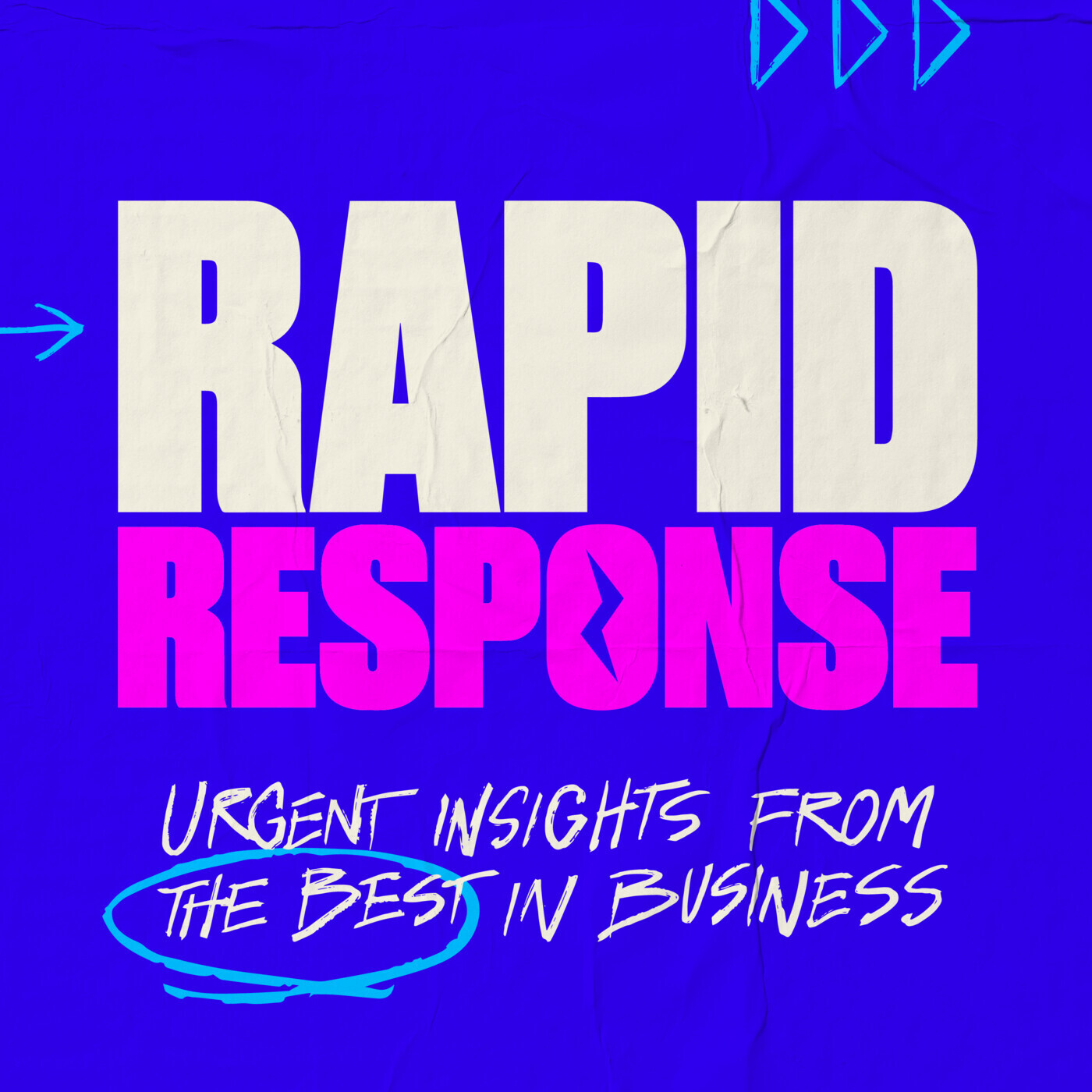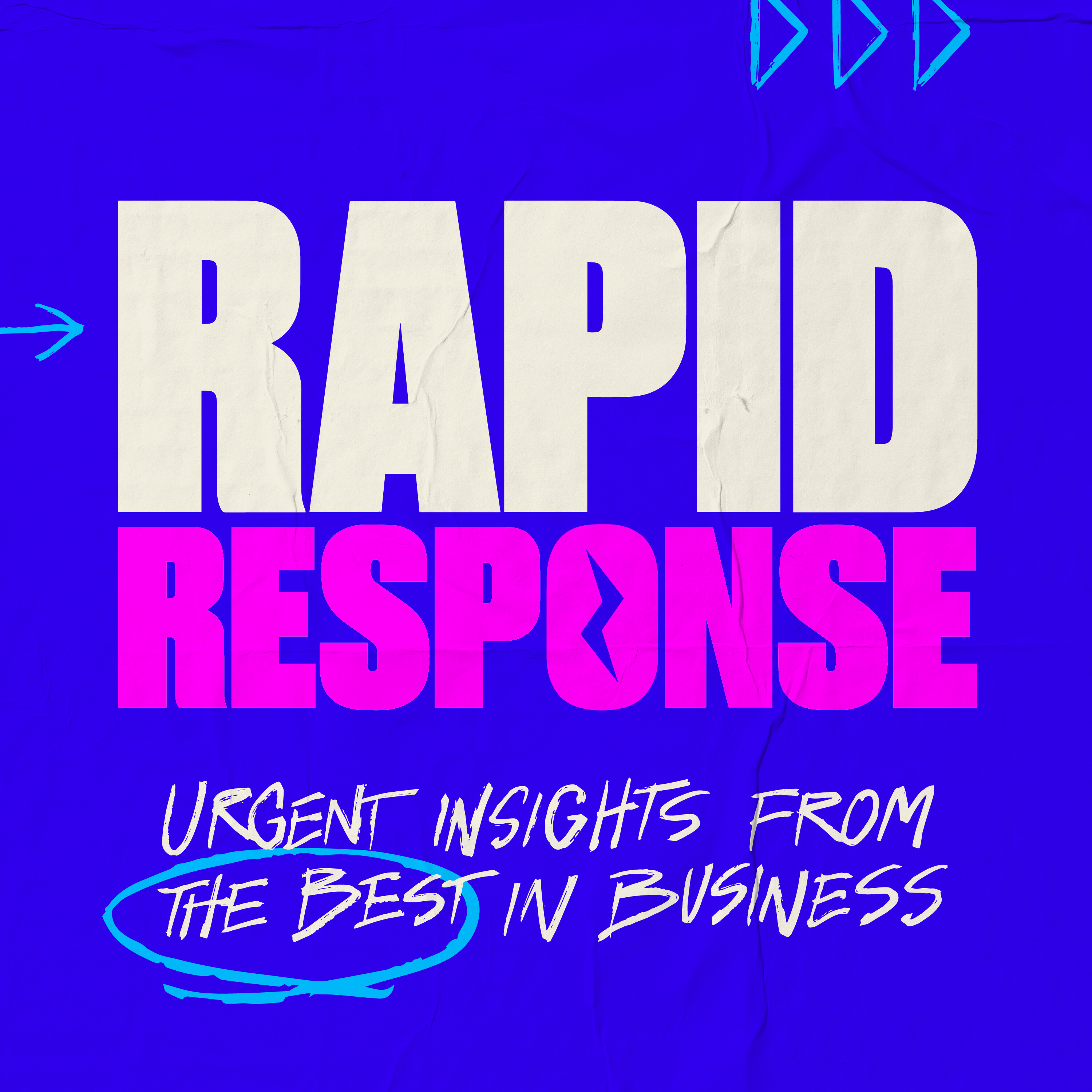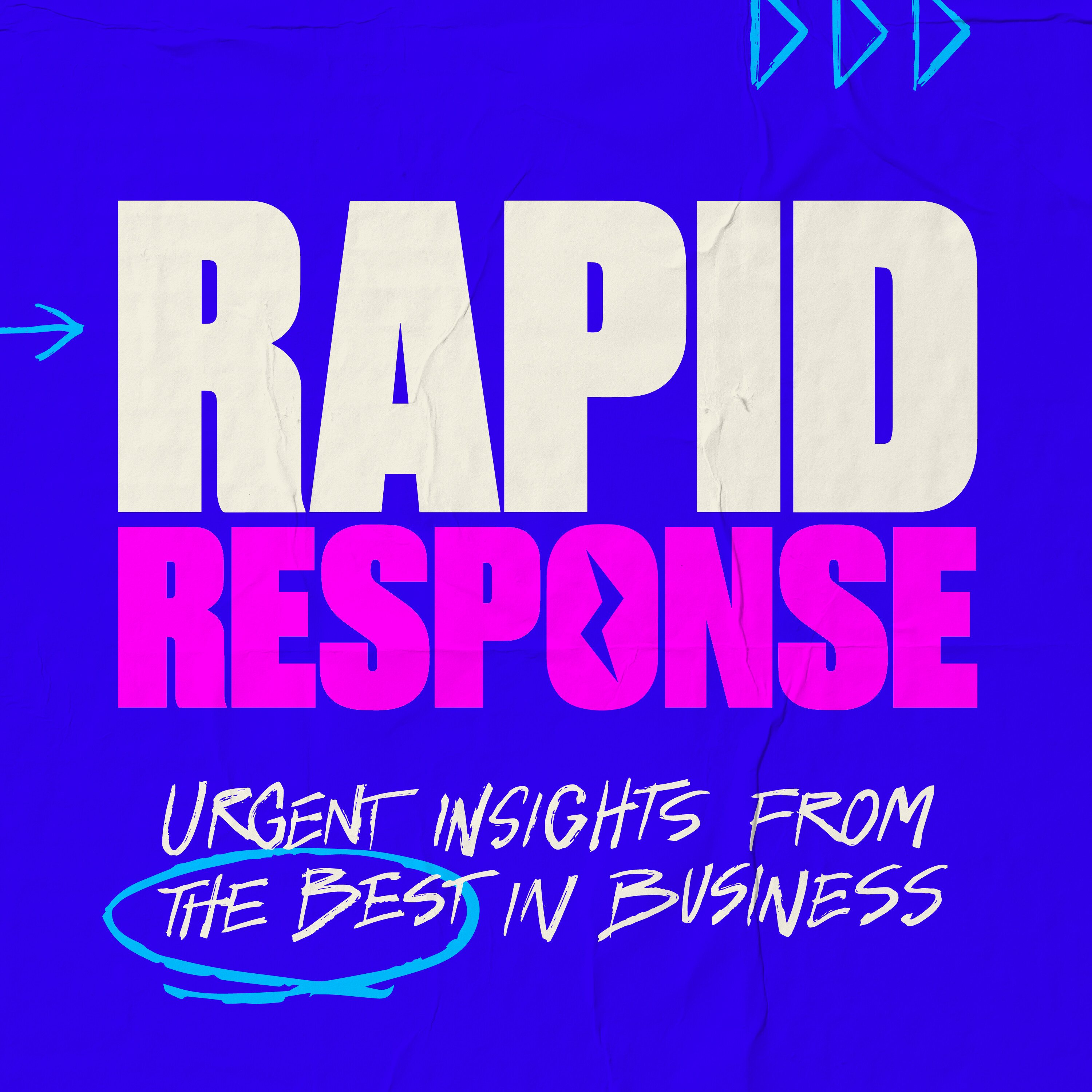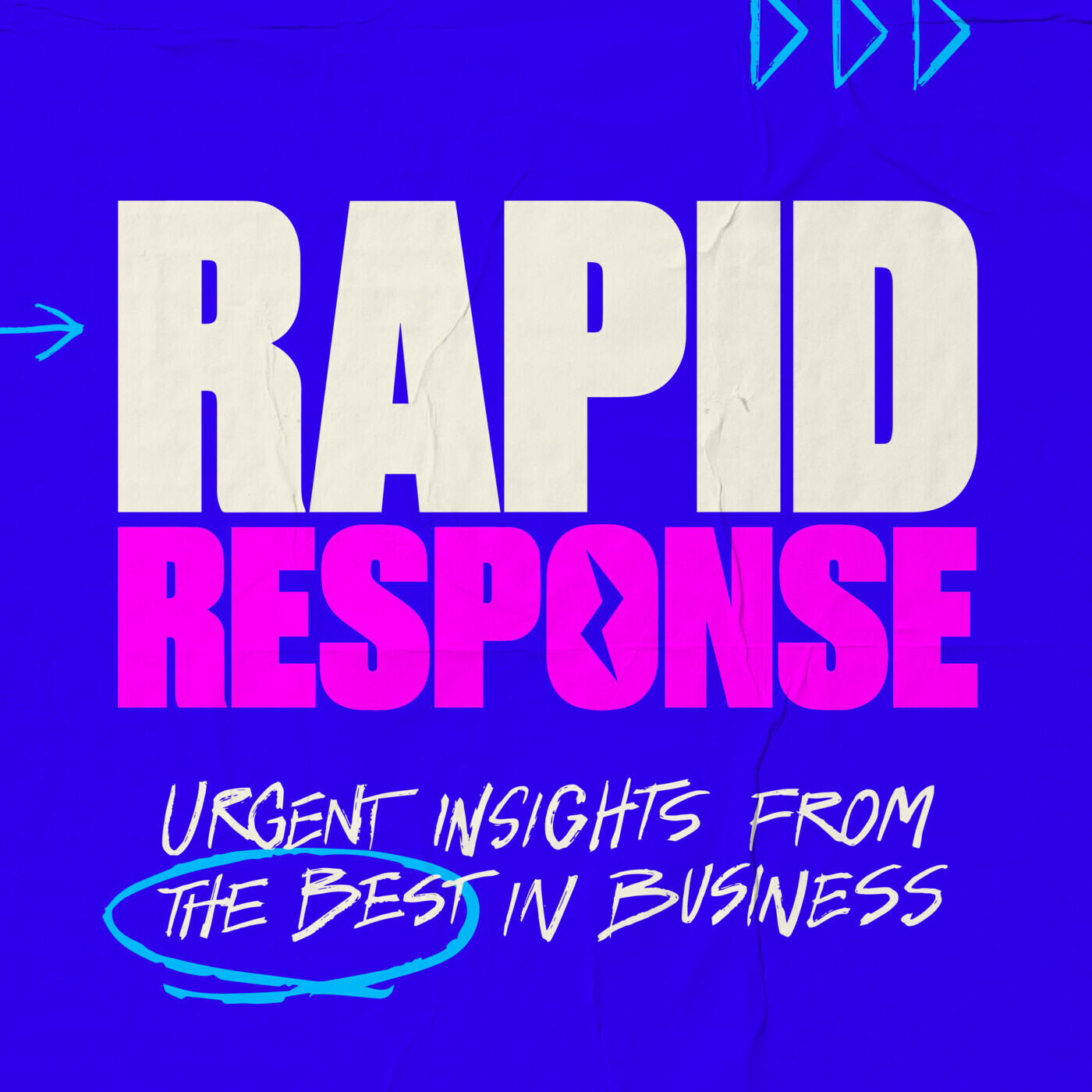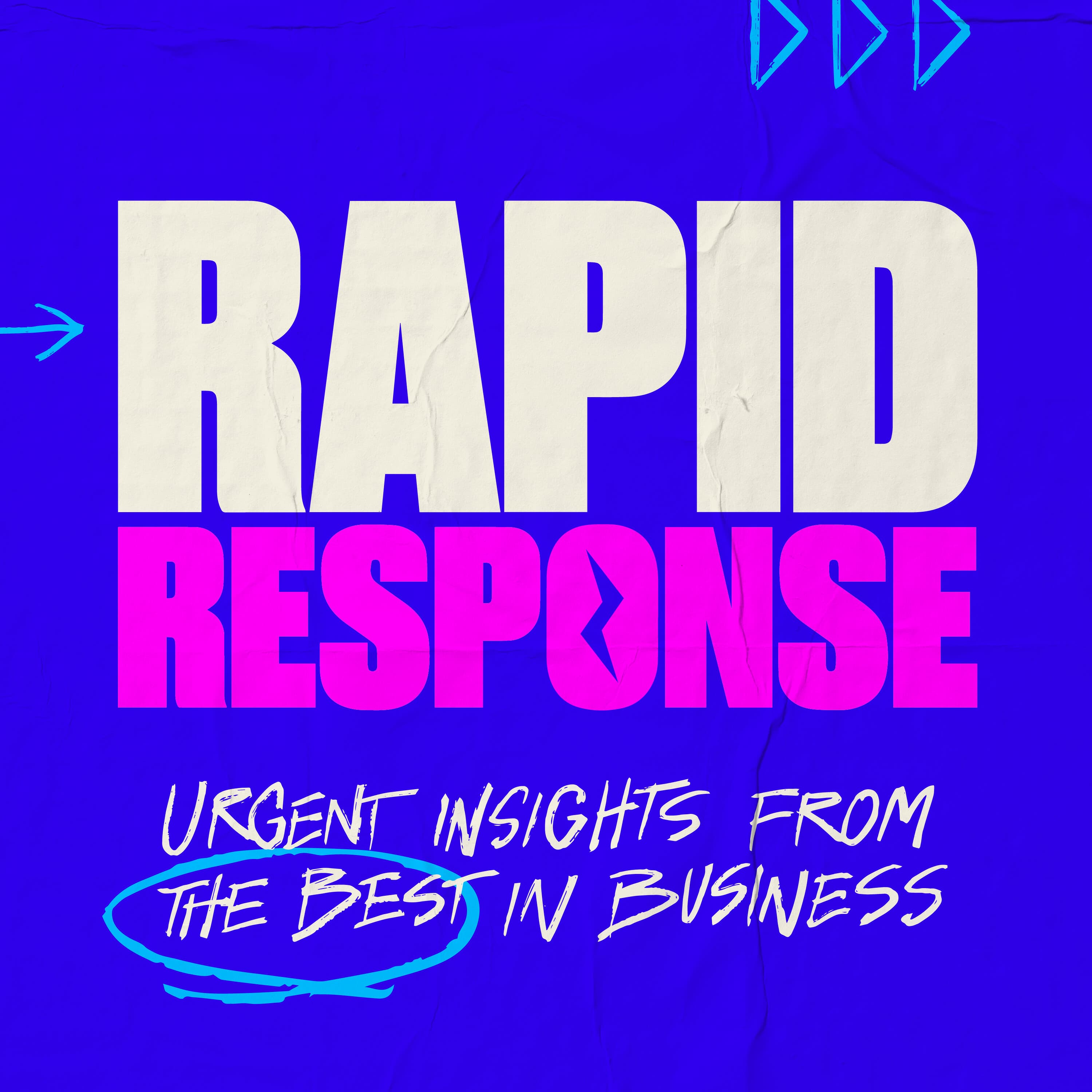
May 21, 2024 • 30min
Rapid Response: What campus protests mean for business, w/Ken Frazier and Ken Chenault
Masters of Scale
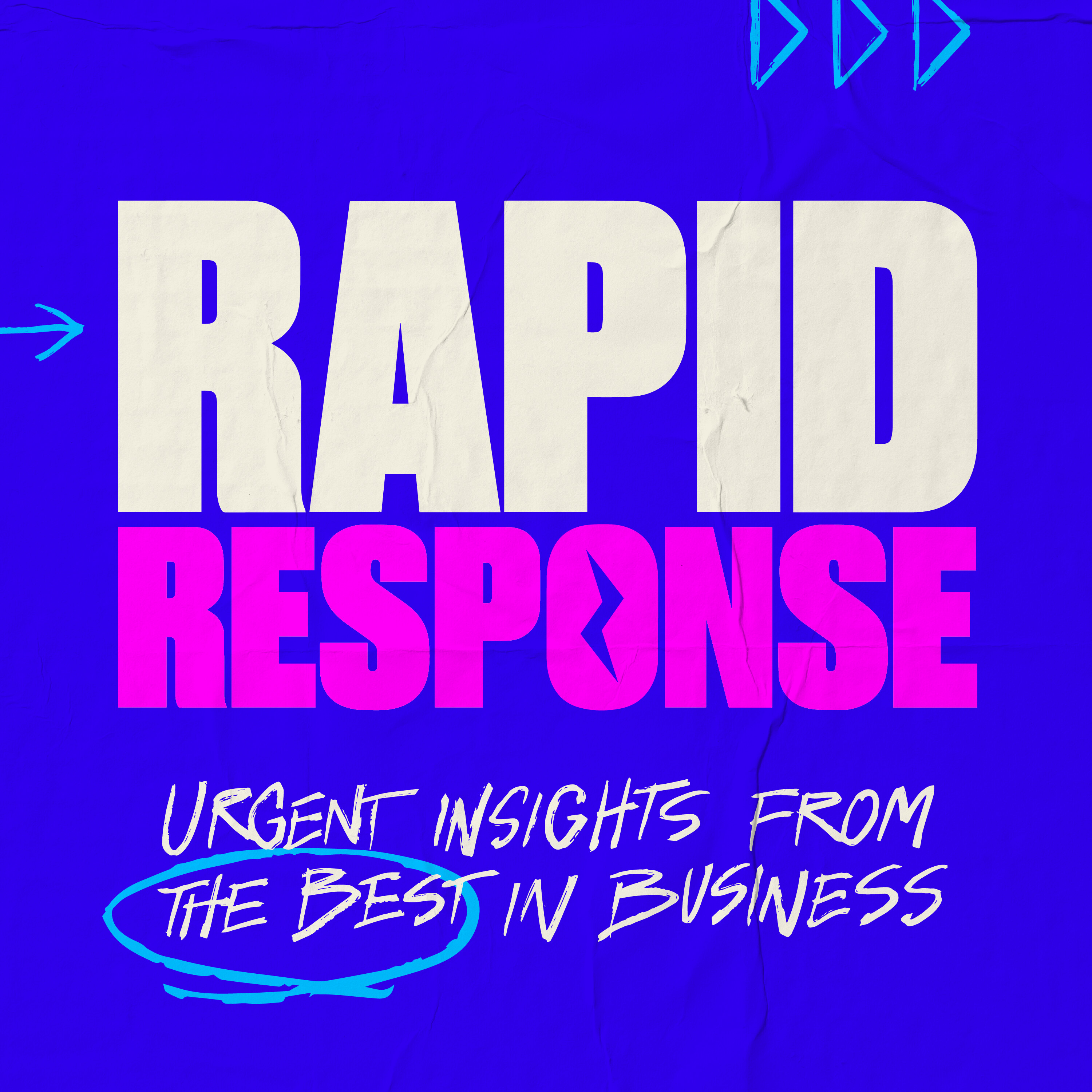
Key Takeaways
- CEO hesitancy to speak out: Many CEOs are now hesitant to speak out on social issues after seeing companies punished for taking stands. However, the speakers argue business leaders have a responsibility to support core democratic principles.
- Diversity and inclusion: The speakers argue diversity efforts are critical for business success, not just social good. They reject the notion that diversity and merit are at odds.
- Campus unrest: The protests over Israel/Palestine on college campuses reflect broader societal divides. Universities need to foster more civil discourse and prepare students to engage constructively on complex issues.
- Leadership lessons: In turbulent times, leaders should reflect before reacting, listen to diverse perspectives, and have the courage to act on core values when needed.
Introduction
This episode features a conversation with Ken Frazier, former CEO of Merck, and Ken Chenault, former CEO of American Express. As two of the most prominent Black executives in American business history and current board members of Harvard University, they offer unique perspectives on diversity efforts, campus unrest, and the role of business leaders in society. The discussion covers controversial topics like DEI (diversity, equity and inclusion), affirmative action, and the Israel-Palestine conflict, providing nuanced takes on these complex issues.
Topics Discussed
CEO Hesitancy to Speak Out (2:51)
The speakers note that many CEOs have become hesitant to speak out on social issues after seeing companies punished for taking stands. However, they argue business leaders have a responsibility to support core democratic principles that underpin the free market system.
"Our businesses depend on certain bedrock principles of our democracy and frankly, of our free market in order for us to continue to be successful over the long term," says Ken Frazier.
- CEOs should consider under what circumstances they would feel compelled to speak out if democracy was truly imperiled
- Voting rights and the January 6th attack on the Capitol were issues the speakers felt warranted business leader responses
- CEOs may have more legitimacy speaking on issues directly related to their business
Diversity, Equity and Inclusion (DEI) (7:37)
The speakers express frustration that DEI has become a "dirty word" in some circles. They argue diversity efforts are critical for business success, not just social good.
"This concept of linking the term DEI that that is bad I think is ludicrous," says Ken Chenault. "There are some programs in diversity and DEI that I don't agree with. But the reality is there are some strategies and tactics for a business that I don't always agree to. But I don't say, boy, let's not have a strategy."
- Diversity is a fact of an increasingly diverse society and talent pool
- The goal is to expand opportunity without discriminating against any group
- Diversity efforts have made institutions like Princeton more meritocratic, not less
- Legal challenges to affirmative action have changed the atmosphere for businesses
OneTen Initiative (13:47)
The speakers discuss OneTen, an initiative they co-founded to create a million new family-sustaining jobs. While initially focused on Black talent without 4-year degrees, they have since broadened the beneficiaries.
- The initiative promotes "skills-first" hiring practices that benefit all groups
- They never excluded anyone based on race, even when focused on Black talent
- Broadening focus is similar to how businesses adapt marketing strategies
Campus Unrest Over Israel-Palestine (23:16)
As Harvard board members, the speakers offer perspectives on the protests over Israel and Palestine on college campuses. They see it as reflecting broader societal divides.
"I think what we're seeing on the college campuses is a microcosm of what's happening in the broader society," says Ken Chenault.
- Many protesters lack nuanced understanding of the complex history
- Universities need to foster more civil discourse and constructive dialogue
- This is an opportunity for universities to rethink their social contract with society
- The majority of students want to engage civilly, but extremes dominate the narrative
Leadership Lessons (27:36)
The speakers draw broader leadership lessons from the campus unrest and societal divisions:
- Reflect before reacting to turbulent events
- Listen to diverse perspectives before deciding a course of action
- Foster an environment where people feel comfortable giving honest feedback
- Be grounded in personal and company values
- Have the courage to act on core values when needed
"One of the most important attributes of an enduring leader is courage," says Ken Chenault. "I think that CEOs need to be courageous, not reckless, not foolhardy. But there are moments, particularly as a CEO, where you have to exhibit courage."
Conclusion
Ken Frazier and Ken Chenault offer nuanced perspectives on some of the most controversial topics in American business and society. They argue for the importance of diversity efforts while acknowledging implementation challenges. On campus unrest, they see an opportunity for universities to foster more constructive dialogue. For business leaders, they emphasize the need to reflect deeply, listen to diverse views, and have the courage to act on core values. Their insights provide a thoughtful framework for navigating complex societal issues.

